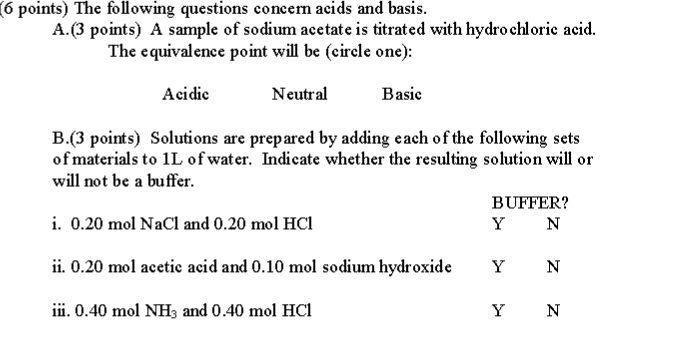The following questions concern acids and basis?

1 Answer
A, Acidic
B. Both ii and iii result in buffered solutions. i does not.
Explanation:
A. When HCl is added to sodium acetate, the strength of the HCl causes a virtually complete reaction to produce acetic acid and chloride ions.
(the sodium ion is a spectator)
The acetic acid then partially ionizes in water to produce an excess of hydronium ion, and the result is an acidic solution.
B. A buffer is created only when we combine a weak acid or base such as acetic acid or ammonia (base) with a strong base or acid (respectively), so that the conjugate of the weak acid or base is produced.
i is a combination of a neutral salt (NaCl) and a strong acid. No buffer.
ii is a weak acid and a strong base. The base will neutralize some of the acid, to form acetate ion (which is the true buffer).
iii is a weak base and strong acid. The HCl reacts with

